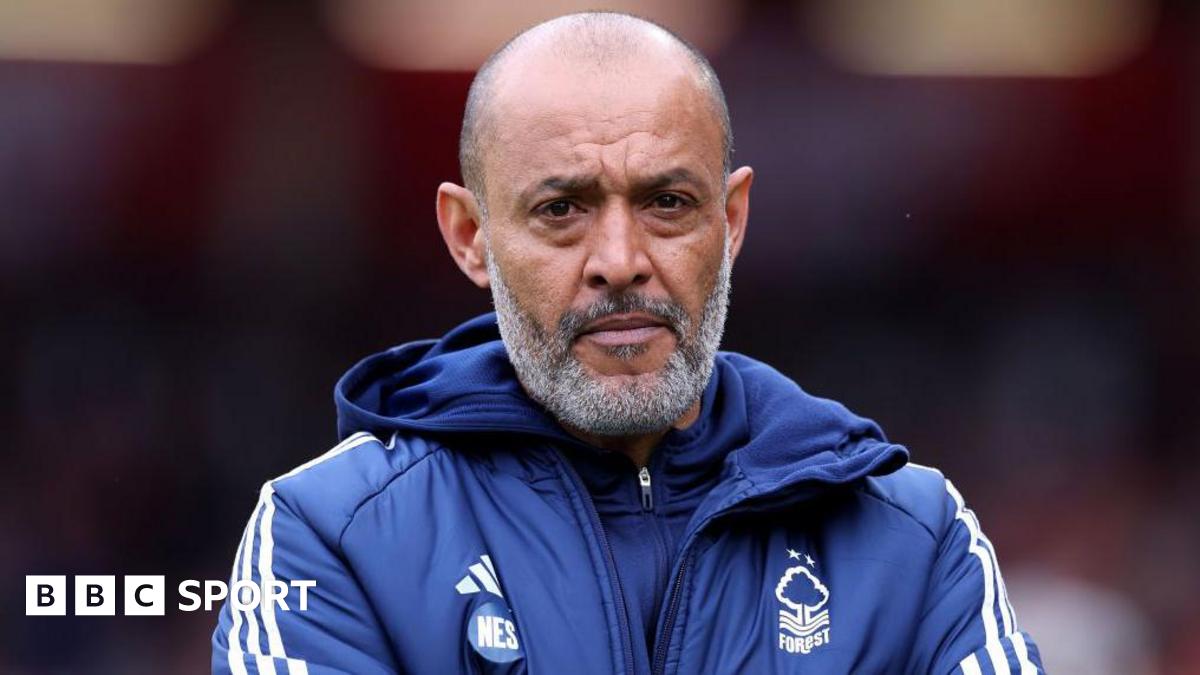'Football risks losing generation of black managers'

English football is at risk of losing a generation of coaches from a black, Asian or mixed heritage background, according to anti-discrimination charity Kick It Out.Nuno Espirito Santo's sacking by Nottingham Forest this week means there is no longer a black manager in charge of a Premier League club.The last time the Premier League was without a black manager was between March and August 2023, following Patrick Vieira's departure at Crystal Palace and before Vincent Kompany's promotion to the top flight with Burnley."This is an issue that has been around for over a decade, and there have been former players who have given up trying to make their way as coaches and managers," said Kick It Out chief executive Samuel Okafor."We know that diverse talent exists, and clubs must be transparent and fair with their recruitment practices."We cannot lose another generation because of a lack of coordinated action."Kick It Out's Football United, external strategy, set-up earlier this month, aims to tackle a lack of representation in leadership positions at football clubs as they do not "reflect their local communities".A 2022 report from the Black Footballers Partnership found 43% of Premier League footballers were black - but only 4.4% of the the managerial positions for former players were taken by black applicants.In executive, leadership and ownership positions, the figure drops to 1.6%.Former Chelsea manager Ruud Gullit became the first black manager to take charge of a Premier League club when he was appointed as player-manager at Stamford Bridge in 1996.Ex-England midfielder Paul Ince was the first black British manager to be appointed head coach of a Premier League club when he took charge of Blackburn in 2008.Ashvir Singh Johal recently became the first Sikh manager in English professional football following his appointment at Morecambe.The Football Association (FA) launched the Football Leadership Diversity Code initiative in 2020, with a view to increasing diversity in senior leadership, team operations and coaching roles across English football clubs.More than 50 clubs, including 19 from the Premier League, signed up to the scheme.But, after many clubs failed to hit targets, FA Rule N was introduced in 2023 that required all clubs to publish their workforce diversity data biannually, covering age, gender, sexual orientation, gender identity, disability and ethnicity.However, while the FA has put in place a number of programmes such as the England Elite Coach Programme to diversify coaching workforces, they still have limited influence over the recruitment process at clubs.The Premier League established the No Room For Racism Action Plan in 2021, which aimed to increase opportunities for black, Asian and minority ethnic individuals.The plan funds two coach inclusion programmes - the Professional Player to Coach Scheme and the Coach Inclusion Diversity Scheme - to help coaches from under-represented groups into roles.Over 80 coaches have utilised the programmes, with 75 going on to full-time employment since the schemes were established four years ago.












